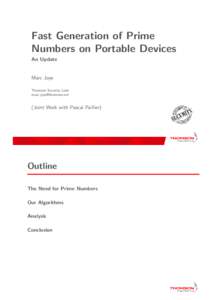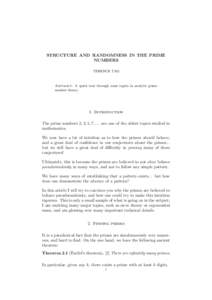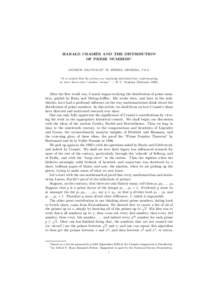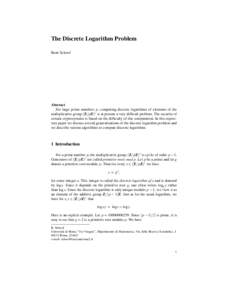<--- Back to Details
| First Page | Document Content | |
|---|---|---|
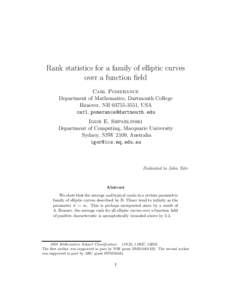 Date: 2008-03-19 13:19:05Analytic number theory Integer sequences Prime numbers Group theory Prime-counting function Prime number theorem Elliptic curve Riemann hypothesis Factorial Mathematics Number theory Mathematical analysis |
Add to Reading List |
 Rank statistics for a family of elliptic curves over a function field Carl Pomerance Department of Mathematics, Dartmouth College Hanover, NH[removed], USA [removed]
Rank statistics for a family of elliptic curves over a function field Carl Pomerance Department of Mathematics, Dartmouth College Hanover, NH[removed], USA [removed]